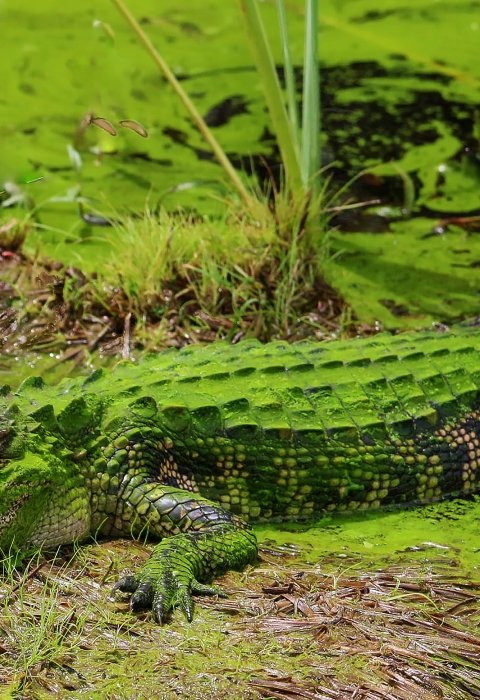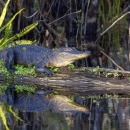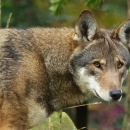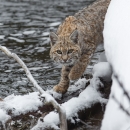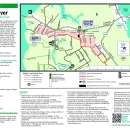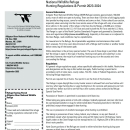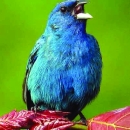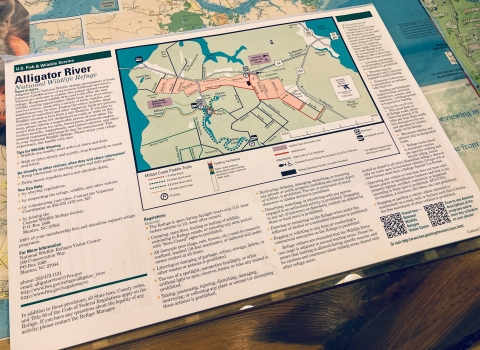
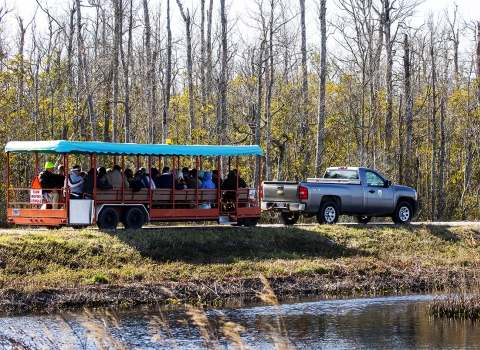
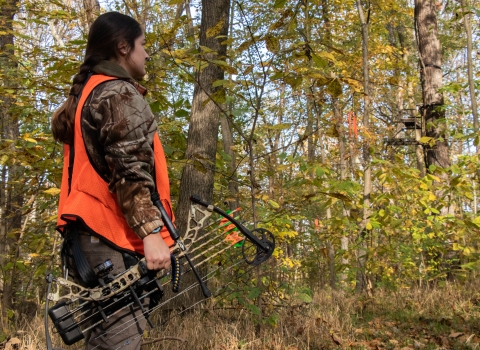
Visit Us
From a multi-refuge Visitor Center full of exciting exhibits to the possibility of seeing charismatic mega-fauna like red wolves and black bear, Alligator River National Wildlife Refuge offers year-round opportunities for learning and adventuring. The refuge is open year-round during daylight hours.
Things to Do
- Don’t miss the National Wildlife Refuges Visitor Center on Roanoke Island and its state-of-the-art exhibits—all free!
- Venture to the Dare County mainland to the refuge's popular Murphy Peterson Wildlife Drive, where locals compete to see who can count the most black bear in one evening. Wildlife abounds in the farming and moist soil management units along the Wildlife Drive. Wildlife are most active in the morning and evening.
- Want to take a leisurely stroll? There are two half-mile, universally accessible wildlife trails in beautiful, quiet and secluded places.
- If you are looking for adventure, a great way to explore the refuge is by canoe or kayak, using the refuge’s 15+ miles of color-coded Paddling Trails.
- Enrich your experience by joining us for a guided interpretive program or tour. Ride on our open-air tram or learn about bears and other wildlife on the refuge!
- For wildlife photographers, there are great photographic opportunities if you have patience and good equipment!
- Hunting and fishing are allowed on the refuge with restrictions.
Location and Contact Information
What We Do
Wildlife conservation is at the heart of the National Wildlife Refuge System. It drives everything on U.S. Fish and Wildlife Service lands and waters managed within the Refuge System, from the purposes for which a national wildlife refuge national wildlife refuge
A national wildlife refuge is typically a contiguous area of land and water managed by the U.S. Fish and Wildlife Service for the conservation and, where appropriate, restoration of fish, wildlife and plant resources and their habitats for the benefit of present and future generations of Americans.
Learn more about national wildlife refuge is established to the recreational activities offered to the resource management tools used. Using conservation best practices, the Refuge System manages Service lands and waters to help ensure the survival of native wildlife species.
